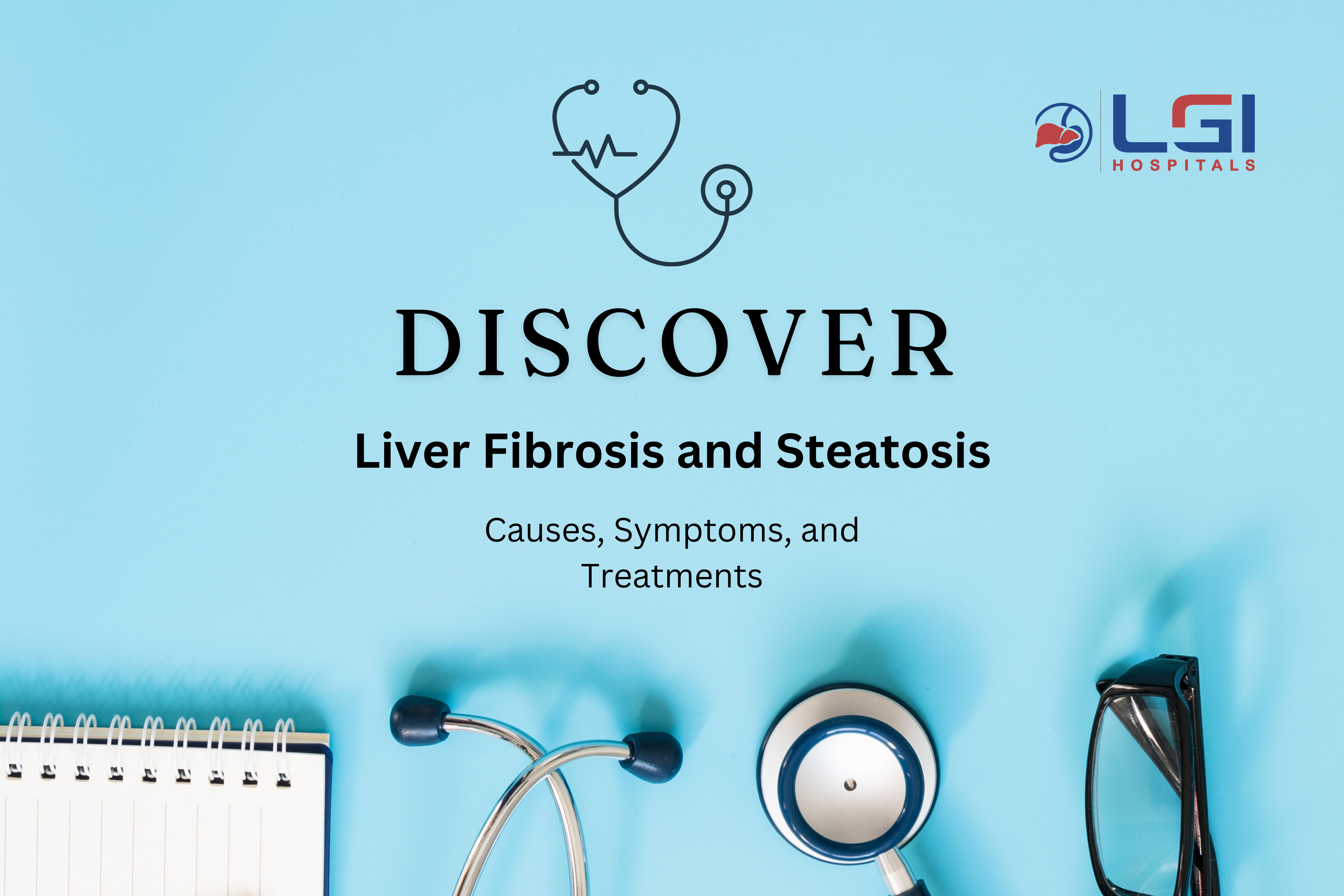Liver fibrosis and steatosis (fatty liver) are conditions that can impact your liver health. Understanding these conditions helps you take proactive steps to maintain a healthy liver. Here’s a straightforward look at what these conditions are, their causes, symptoms, and available treatments.
What is Liver Fibrosis?
It is a condition where the liver becomes scarred due to ongoing damage. This scarring occurs as the liver attempts to repair itself from repeated injuries. Over time, excessive scar tissue can hinder liver function. Common causes include chronic liver diseases, excessive alcohol consumption, and fatty liver disease.
Is Fibrosis of the Liver Serious?
This can be serious if not managed properly. While early stages might not show significant symptoms, untreated fibrosis can progress to cirrhosis, a severe liver condition. Early detection and management are crucial to prevent further liver damage and complications.
What Causes Liver Fibrosis?
- Chronic Liver Diseases: Conditions like hepatitis can cause ongoing liver inflammation and damage.
- Excessive Alcohol Consumption: Drinking large amounts of alcohol over time can lead to liver damage and fibrosis.
- Fatty Liver Disease: Often associated with obesity and diabetes, this condition can contribute to fibrosis if not managed properly.
What is Liver Steatosis (Fatty Liver)?
Liver steatosis, commonly known as fatty liver, is characterized by an abnormal buildup of fat in the liver. It can sometimes lead to fibrosis if not addressed. Excessive alcohol consumption is a significant risk factor for developing fatty liver.
What Are the Symptoms?
- Liver Fibrosis: Symptoms may not be obvious in the early stages. When present, they might include fatigue, jaundice (yellowing of the skin), or discomfort in the upper right abdomen.
- Fatty Liver: Symptoms can include general fatigue, unexplained weight loss, and abdominal discomfort. In many cases, fatty liver may not cause noticeable symptoms until it progresses.
How is Fibrosis Diagnosed?
Diagnosing fibrosis typically involves:
- Blood Tests: To evaluate liver function and detect any abnormalities.
- Imaging Tests: Ultrasounds or other imaging techniques can help assess liver condition.
- Liver Biopsy: In some cases, a biopsy may be necessary to determine the extent of liver damage.
What is the Treatment ?
- Lifestyle Changes: Adopting a healthy diet, regular physical activity, and avoiding excessive alcohol consumption are fundamental steps in managing this condition.
- Medications: Depending on the underlying cause, medications may be prescribed to help manage liver damage or treat associated conditions.
- Medical Procedures: For severe cases, medical procedures might be required to address complications.
Is F2 Fibrosis Curable?
F2 is an early stage of fibrosis. While complete reversal might not always be possible, managing the condition through lifestyle changes and medical treatment can help improve liver health and prevent further progression.
How Long Can I Live with Liver Fibrosis?
The outlook for someone with this condition depends on various factors, including the stage of fibrosis, the effectiveness of treatment, and overall health. Early diagnosis and appropriate management can contribute to a better prognosis and improved quality of life.
Prevention and Management
To support liver health and prevent fibrosis:
- Maintain a balanced diet and healthy weight.
- Engage in regular physical activity.
- Avoid excessive alcohol consumption: Drinking alcohol in moderation or abstinence entirely can significantly reduce the risk of liver damage and fibrosis.
Finally at the End
Understanding liver fibrosis and steatosis is crucial for maintaining liver health. By making informed lifestyle choices and seeking medical advice, you can effectively manage these conditions. For the best care and personalized treatment for liver fibrosis and steatosis, consult with the experts at LGI Hospital in Nagpur. Their specialized team provides top-notch care to support your liver health journey.

